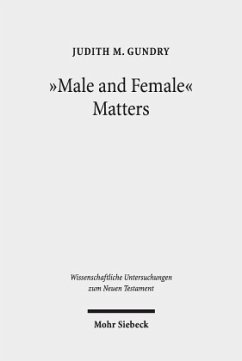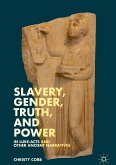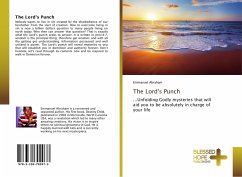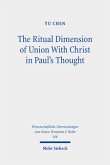In 1 Corinthians 7 Paul advises not marrying, unless one "burns." No exception is made for marrying to have children. Judith Gundry seeks to explain Paul's striking departure from biblical teaching on marriage and procreation as obligations based on being created "male and female" to "be fruitful and multiply." She argues that 1 Corinthians 7 is best read in the light of ancient texts on marriage and procreation to establish and perpetuate households. In Greco-Roman antiquity, the household was essential not only to the future of the cosmos and welfare of the state, but also to individual men facing their own mortality. Men married to establish households and obtain legitimate children as heirs to carry on their names and family lines. This required women to bear children, and children to perform duties in honor of their parents. The household thus determined social roles. But from a Jewish apocalyptic or early Christian perspective, things looked different. The resurrection of the dead had begun, suggesting a diminished purpose for marriage. The eschatological distress was impending, implying that affliction rather than blessing would befall procreators. The ideal of concord was unattainable in communities divided into competing households. Some had already joined celibate communities where members pursued contemplation or mutual service, rather than heirs and individual households. Judith Gundry shows that Paul's directives and advice in 1 Corinthians 7 compare well with such perspectives. Paul's advice to prefer celibacy - for those who could avoid sexual immorality - was a recommendation of childlessness over abundant fertility. His warning to the married about affliction in the impending distress was an attempt to spare them the awful consequences of procreation in the end-times. His instruction to husbands to curtail sex with their wives hinted at giving up the conventional use of wives to obtain heirs, and instead having nonprocreative sex. His allowance of sexual abstinence in marriage by mutual agreement "for a suitable time" alluded to an ancient contraceptive method. His description of Christ-believers' children as "consecrated" to God undercut their significance for perpetuating households. Gundry concludes that being created "male and female" (hence, sexual differences) mattered to Paul without entailing the obligation to procreate and other gender-specific roles integral to the household. This view is contradicted in the later Pauline tradition (Colossians, Ephesians, and the Pastoral Epistles), where the household again plays a key role.








